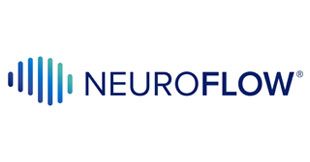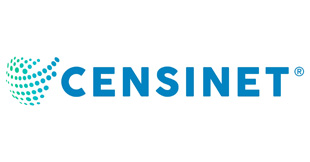Cost and complexity of healthcare continues to rise, and hospitals and health systems increasingly turn to technologies like artificial intelligence (AI), machine learning and robotic process automation (RPA) to keep up with complexity and drive down the associated costs. Olive, the company that introduced healthcare’s digital employee, today announced a continued increase in company and customer growth.
Olive has expanded adoption of the company’s namesake digital employee this year, finding homes in more than 500 hospitals comprising more than 65 of the nation’s top healthcare organizations in the U.S. Olive customers, Centura Health and Yale New Haven Health, were both seeking artificial intelligence technology to help achieve mission-critical goals.
“Everything we do at Centura Health is centered around delivering the best care to our patients. We continually strive to innovate and implement solutions that are efficient, effective and aimed at improving the patient experience,” said Ramy Hanna, Senior Vice President of Operations and Shared Services at Centura Health. “Innovative solutions using artificial intelligence help us to achieve our mission of being there for our patient’s health and we look forward to realizing the value Olive will bring to our organization over time.”
At both Centura Health and Yale New Haven Health, Olive will play a key role in taking on burdensome day-to-day processes, so employees can focus on higher-value, more rewarding initiatives.
“At Yale New Haven Health we’re starting our Artificial Intelligence journey working with Olive to automate prior authorizations,” said Sharlene Seidman, Vice President of Patient Financial Services at Yale New Haven Health (YNHH). “At YNHH we believe our people are the pivotal component to providing the best patient financial experience. That’s why we embrace innovation, to remove transaction based work and free our staff to focus on the compassionate guidance of our patients through their healthcare journey. AI is poised to make a significant positive impact at YNHH and on the industry as a whole.”
AI Adoption in Hospitals is Increasing
Health systems, like organizations in many industries, are seeking to increase revenue, reduce operational cost and increase capacity to deliver meaningful work. In fact, twenty three percent of hospital leaders are looking to invest in AI/RPA today, while half plan to do so by 2021 (according to a survey conducted by Olive with Sage Growth Partners).
“There’s a growing, multi-billion dollar problem: healthcare doesn’t have the internet. Instead, healthcare uses humans as routers, forcing workers to toggle between disparate systems – they copy, they paste, they manipulate data – they become robots. They click and type and extract and import, all day long – and it’s one of the leading reasons that one out of every three dollars spent in the industry today is spent on administrative costs.” Olive CEO Sean Lane said. “Olive is on a mission to solve that challenge with health systems deploying a digital workforce that learns, adapts and improves over time.”
As leaders seek to scale and grow, they have realized that AI and RPA are essential tools to support handling and processing data more efficiently. The key to successfully building out an enterprise-wide AI solution is to begin with processes that are high-volume, and repetitive, where you can quickly feel impact; this helps build momentum to expand into more complex workflows.
Olive Learns, Adapts and Improves Over Time
As a digital employee that can complete tasks more than 60 times faster than a human, Olive has been hard at work. So far this year:
- Olive has completed more than 350 million actions across all workflows and processes
- For one 2,000+ bed customer, Olive has completed more than 450,000 claim status checks
- For another 2,000+ bed customer, Olive has processed more than 250,000 charge corrections
But processing mass amounts of data is not enough. To truly solve critical challenges such as cost savings, efficiency gains and revenue recognition, Olive has to adapt and learn over time. For example, by consuming large amounts of historical claim status data, Olive is already identifying appealable denial codes. Correcting the cause of just one appealable denial code can result in thousands, sometimes even millions, of dollars in revenue recognition. These valuable insights are what sets apart a digital workforce from traditional RPA software.
Olive Creates Jobs, Attracts Healthcare and Tech Industry Veterans
The Olive team is growing rapidly, too. In the first five months of 2019, Olive met a two-year goal to hire 100 new team members, and the company says there will continue to be job growth to match company growth. Recruited talent is increasingly made up of those with healthcare backgrounds, enriching the company’s collective industry knowledge and expertise. Recent executive additions include:
- Lori Jones, Chief Revenue Officer, is leading Olive’s revenue organization with decades of experience in healthcare at companies like McKesson Corporation and Connance, Inc. Lori brings deep expertise in helping providers identify effective ways to harness the potential of technology.
- Jim McCormick, Chief Financial Officer, is leading Olive’s financial, accounting and delivery divisions, with decades of experience in the IT and Software-as-a-Service space. Jim brings to Olive experience leading finance and operations organizations at companies like Silverpop Systems and Harbinger Corporation.
“We’re on pace to triple our business and have no plans to slow down,” said Lane. “There’s a clear and present need for operational efficiency in the healthcare industry and Olive brings it – ultimately, we’re leading a movement toward a smarter, more efficient, more connected healthcare experience.”




